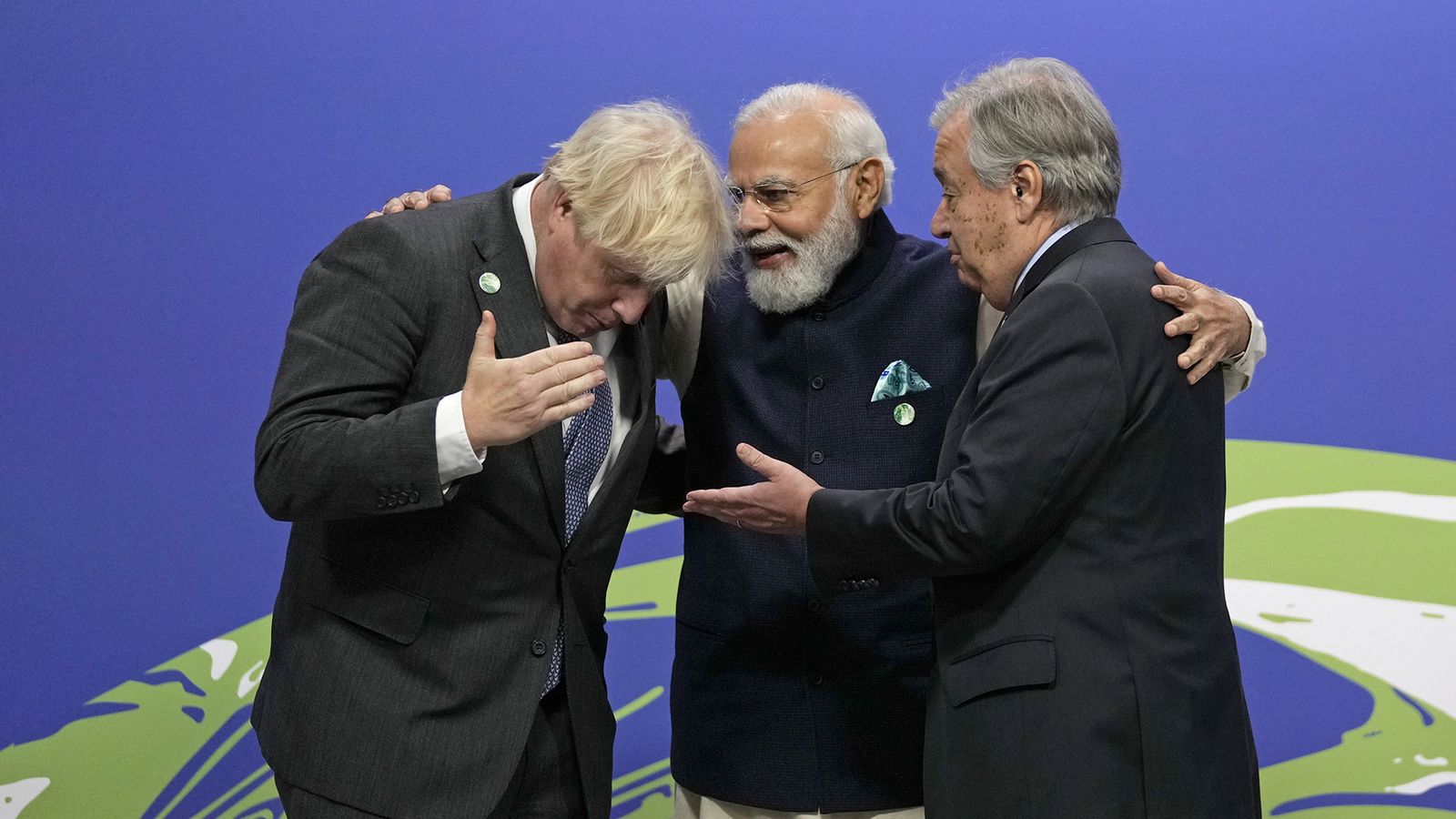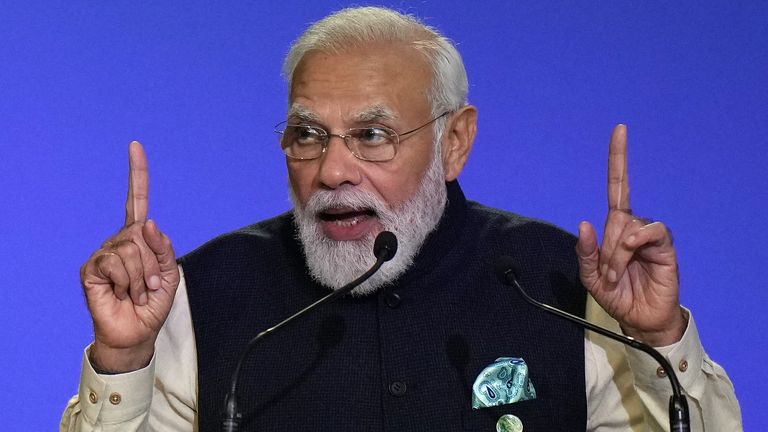2070. It’s the most distant net-zero target of any G20 nation, but, as one climate activist in Kolkata, India, told Sky News: “At least it’s a start, although I’ll be dead by then.”
Coming into Glasgow’s COP26 climate summit, India hadn’t updated its previous carbon reduction commitments (or NDCs, Nationally Determined Contributions) pledged during the 2015 Paris climate talks.
It had, also, never set a date for net-zero – achieving a balance between the amount of greenhouse gas emissions produced and the amount removed from the atmosphere.
COP26 latest updates as climate summit begins in Glasgow
But amidst bullish chatter from Indian senior ministers last week that the country didn’t need to bow to international pressure of “setting a date”, the sense from New Delhi was that a target would still come.
And so it was. For 49 years from now.
“Greta has another leader for the blah blah blah club,” reacted one youth activist on social media.
But even a far-seeming target like 2070 will be a huge task for the world’s third-biggest carbon emitter, requiring a massive overhaul of its economy and making enormous demands on its people.
There was no explicit mention of coal in India Prime Minister Narendra Modi’s speech but really that’s the issue that the net-zero target is addressing.
To make this happen, researchers in India say there will have to be a cap on coal at some point in the next two decades.
And that’s massive. Around 60% of India’s current electricity demand is met by burning coal.
For many poor families, coal is the cheapest fuel they can find for the very basics.
The coal industry itself provides incomes and livelihoods for many hundreds of thousands.
Plus, as the country seeks to lift many of its 1.3 billion out of poverty, energy demands are just going to grow.
India has made a significant domestic investment in renewable energy sources, especially solar and some will hope that, based on current trajectories, maybe that 2070 date could edge forward.
Follow the Daily podcast on Apple Podcasts, Google Podcasts, Spotify, Spreaker
But that will need investment and Mr Modi set the price tag in his COP26 address.
He called on developed nations for $1trn of climate financing, to help developing nations go green.
India has given the world a date; it’s now asking the world for the dollars.
For full coverage of COP26, watch Climate Live on Sky channel 525.
Follow live coverage on web and app with our dedicated live blog.
Get all the latest stories, special reports and in depth analysis at skynews.com/cop26



